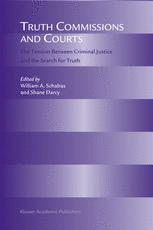

Most ebook files are in PDF format, so you can easily read them using various software such as Foxit Reader or directly on the Google Chrome browser.
Some ebook files are released by publishers in other formats such as .awz, .mobi, .epub, .fb2, etc. You may need to install specific software to read these formats on mobile/PC, such as Calibre.
Please read the tutorial at this link: https://ebookbell.com/faq
We offer FREE conversion to the popular formats you request; however, this may take some time. Therefore, right after payment, please email us, and we will try to provide the service as quickly as possible.
For some exceptional file formats or broken links (if any), please refrain from opening any disputes. Instead, email us first, and we will try to assist within a maximum of 6 hours.
EbookBell Team

0.0
0 reviewsCriminal justice for human rights abuses committed during periods of political repression or dictatorship is one of the great challenges to post-con?ict societies. In many cases, there has been no justice at all. Sometimes serious political concerns that e?orts at accountability might upset fragile peace settlements have militated in favour of no action and no accountability. In many cases, the outgoing tyrants have conditioned their departure upon a pledge that there be no prosecutions. But thinking on these issues has evolved considerably in recent years. Largely driven by the view that collective amnesia amounts to a violation of fundamental human rights, especially those of the victims of atrocities, attention has increasingly turned to the dynamics of post-con?ict accountability. At the high end of the range, of course, sit the new international criminal justice institutions: the ad hoc tribunals for the former Yugoslavia and Rwanda, the Special Court for Sierra Leone, the various ‘‘hybrid’’ tribunals in Kosovo, East Timor and Cambodia, and the new International Criminal Court. But in terms of sheer numbers, the most signi?cant new institutions are truth and reconciliation commissions. Of va- able architecture, depending upon the prerogatives of the society in question and the features of the past con?ict, they have emerged as a highly popular mechanism within the toolbox of transitional justice. In some cases, the truth commission is held out as an alternative to criminal justice.